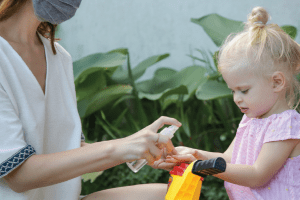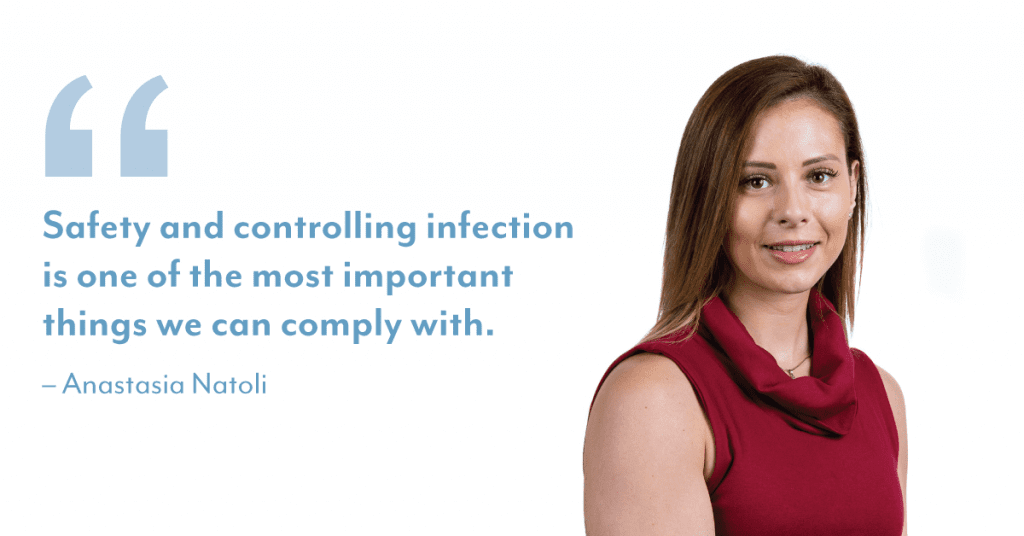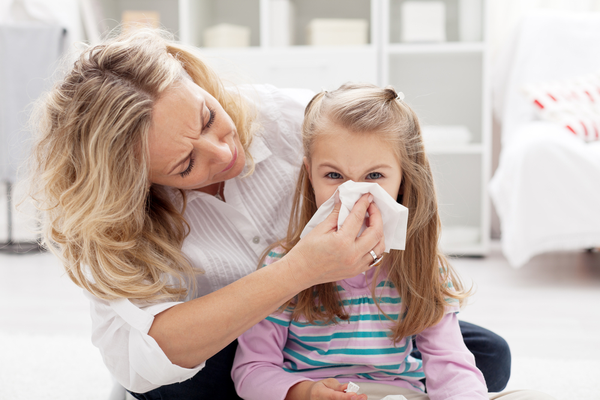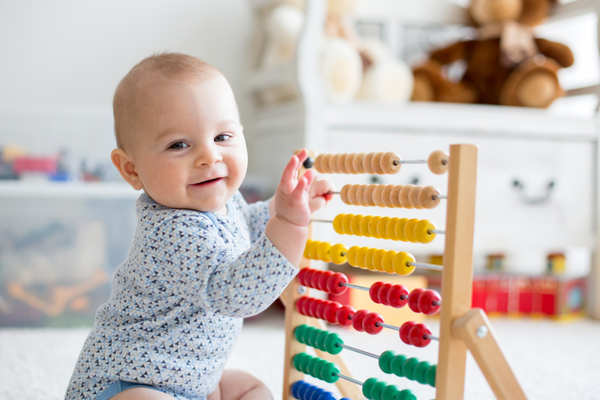We spoke to Selmar early childhood education Regional Manager Anastasia Natoli about the infection control challenges faced by the early childhood education and care industry as a result of the COVID-19 pandemic and the hard work services are doing to protect children and families.
Early childhood educators are vital to our communities, ensuring that children have access to high–quality learning and care during the crucial early years of life. While educators are classified as essential workers Stage 4 restrictions in Victoria will see the closure of many centres in Melbourne to all but those children who are vulnerable, or those of permitted workers, in an effort to stem the current transmission levels of COVID-19.
As well as working to enhance children’s development and wellbeing, educators enable families to continue to work with the confidence that their children are in safe hands. In response to the greater focus in infection control, educators and centres have introduced a range of infection control protocols to protect staff, children and families in our communities while still maintaining the highest quality education and care.

COVID-19 protocols for early childhood services
Selmar Regional Manager, Anastasia Natoli has seen firsthand the new protocols that centres are putting into place to minimise the risk of infection and potential virus spread.
She explained that while centres have always been on top of infection control, there are many big changes in the way services are operating compared to a few months ago.
“As a sector, early childhood professionals are always cautious and follow the regulations and recommended guidelines to ensure the safety of our children is maintained, educated and of course role modelled by educators. With the current COVID-19 spread I believe this has become more evident in all practices.”
From reducing visitors to only those that are imperative, to adapting the way children and arrive and depart, early childhood services and kindergartens have been thorough and swift in their approach to risk mitigation during Stage 3 restrictions. Anastasia experienced the new protocols in action at a recent visit to a service, immediately noticing the attention to detail.
“The centre had marked spacing points from the carpark to the front door. Upon arrival I was temperature tested, asked to sanitise my hands in the foyer and had to complete a risk assessment form declaring my own health and whereabouts.”
How centres are implementing infection control protocols
While Anastasia was visiting a service for work-related training reasons, early childhood providers in Melbourne are now closed except to vulnerable children or those of permitted workers, until mid-September.
Anastasia explained that transitions at drop-off can be tricky at the best of times and have become more difficult in some situations, but minimising the risk for children, families and educators remains the number one priority.
Drop-off transitions are not the only challenge services are facing at this time. The early childhood industry has faced much uncertainty throughout the COVID-19 pandemic. While many centres have faced a range of challenges, such as reduced occupancy and even temporary closure in some instances, the priority has continually been the wellbeing of children.
Support for early childhood centres
When it comes to putting these new protocols in place, early childhood services have the support of the Department. Anastasia noted that routine checks are being undertaken by Department representatives to ensure that the safety of the sector is upheld. This has included a range of funding, such as more cleaning grants to help with some of the practical infection control endeavours and resources to inform educators, parents and children of best practice.
She advised that the Department have also created useful posters that centres can post up on their walls, doors and boards reminding all staff members and parents of the appropriate hygiene practices to keep everyone safe.
While she’s confident that services are doing a great job at infection control and have risk mitigation procedures under control, the biggest concern she has about the COVID-19 pandemic is in relation to the children.
“As young children it is hard for some to understand what the world is going through and why mum or dad cannot come into their play space but only drop them at the front foyer. Educators are doing such a great job at easing this process, but it’s hard to explain to children.”
The most important thing for essential workers to remember at this time:
“What we do at work can affect what happens outside of the workplace. If we can remember that safety and controlling infection is one of the most important things we can comply with, we can protect the children and families at centres and our own families too” said Anastasia.

For more information, please refer to the Coronavirus (COVID-19) advice for early childhood services provided by the Victorian State Government. Any infection control and prevention strategies conducted should be line with the advice provided by the Australian Government Department of Health and the Department of Education, Skills and Employment.
At Selmar we are here to provide assistance to our learners and clients. For any questions, please reach out to us.



